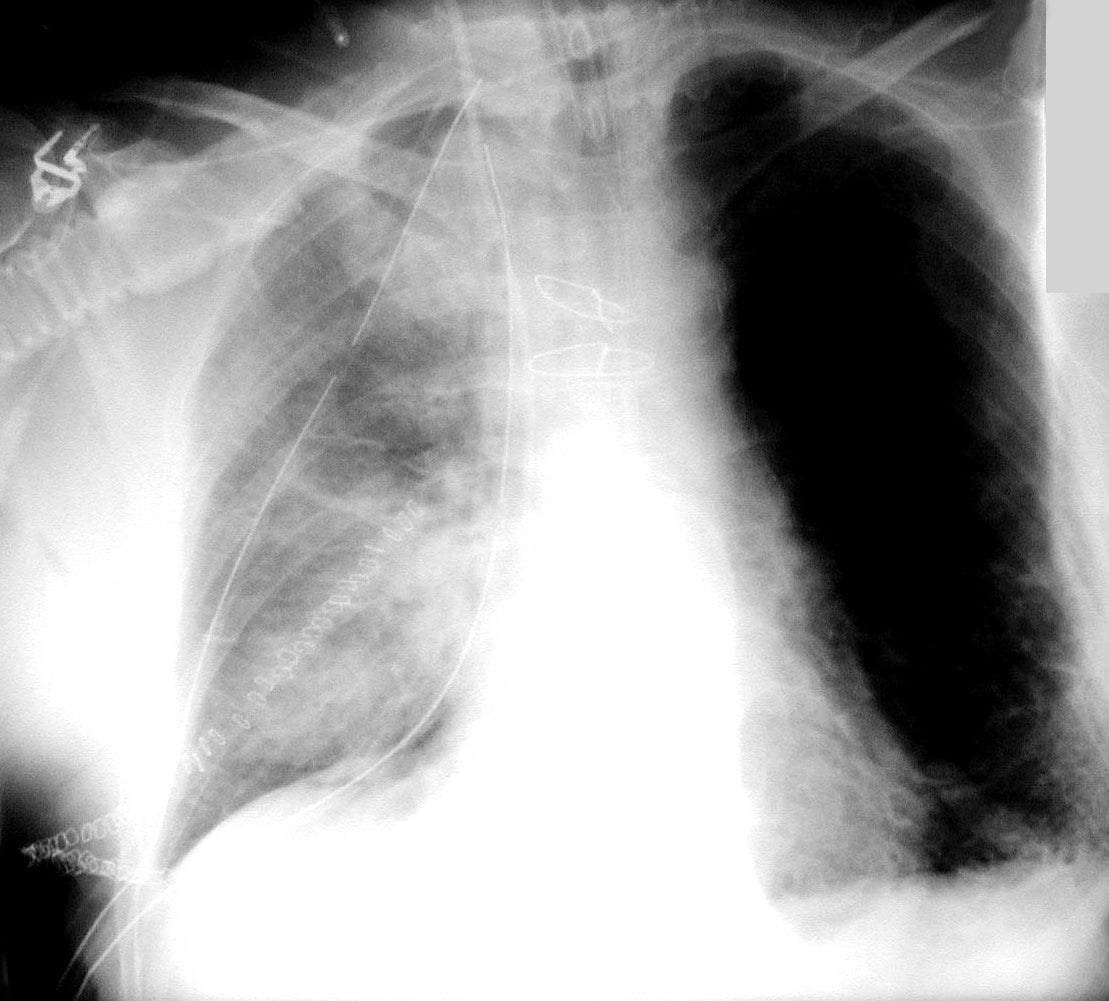Researchers at Emory studying lung transplantation have identified a marker of inflammation that may help predict primary graft dysfunction (PGD), an often fatal complication following a lung transplant.

Primary graft dysfunction after a lung transplant
The results are published in the American Journal of Transplantation. First author Andres Pelaez, a pulmonary medicine specialist at Emory’s McKelvey Lung Transplant Center, and postdoc Patrick Mitchell led the research team.
“Despite major advances in surgical techniques and clinical management, serious lung transplant complications are common and often untreatable,†Pelaez says. “PGD is a severe lung injury appearing just a few days after transplantation. Unfortunately, predicting which lung transplant recipients go on to develop PGD has been so far unsuccessful. Therefore, our research has been directed towards identifying predictive markers in the donor lungs prior to transplantation.â€




